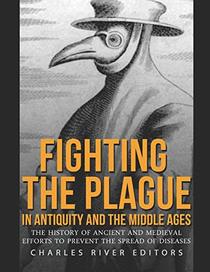This book offers an overview of the medical offerings from ancient times to the middle ages and frankly, they were pitiful. Because physicians had no idea, they often blamed illness as caused by the sinning of the victim. Even when physicians became more abundant, they offered their services only to particular segments of the population: the affluent and the military (better doctors) or the poor (the poorest specimens of the profession).
When they had no better idea as to the cause of pandemics and other illnesses, they saw it as God's will or supernatural forces. 'Foul Air' was the cited cause for a thousand years. Incense was often used to ward off the foul air. Jews were often castigated for plagues because they seemed to be less affected by broadly-sweeping illnesses. What the people did not understand was that Jewish strict cleanliness and dietary procedures made them less susceptible to those illnesses.
It was interesting to learn where the sacrament 'Extreme Unction' came from; during the Plague, priests went from house-to-house giving the last rites (now called 'Anointing of the Sick') to members of their congregations. The side effect of this behavior was that a higher number of priests died than any other occupational group. It was surprising to learn that hospitals were for the military and churches created hospitals for their poor. The Middle Ages governments did not provide hospitals for anyone but their military.
Surprisingly, this book is so current that it comments on COVID and other recently-infectious viruses (SARS, West Nile Virus, and others). It's a trip down memory lane -- one that will remind the reader that now is a better time to be alive than ancient and the Middle Ages.
When they had no better idea as to the cause of pandemics and other illnesses, they saw it as God's will or supernatural forces. 'Foul Air' was the cited cause for a thousand years. Incense was often used to ward off the foul air. Jews were often castigated for plagues because they seemed to be less affected by broadly-sweeping illnesses. What the people did not understand was that Jewish strict cleanliness and dietary procedures made them less susceptible to those illnesses.
It was interesting to learn where the sacrament 'Extreme Unction' came from; during the Plague, priests went from house-to-house giving the last rites (now called 'Anointing of the Sick') to members of their congregations. The side effect of this behavior was that a higher number of priests died than any other occupational group. It was surprising to learn that hospitals were for the military and churches created hospitals for their poor. The Middle Ages governments did not provide hospitals for anyone but their military.
Surprisingly, this book is so current that it comments on COVID and other recently-infectious viruses (SARS, West Nile Virus, and others). It's a trip down memory lane -- one that will remind the reader that now is a better time to be alive than ancient and the Middle Ages.




